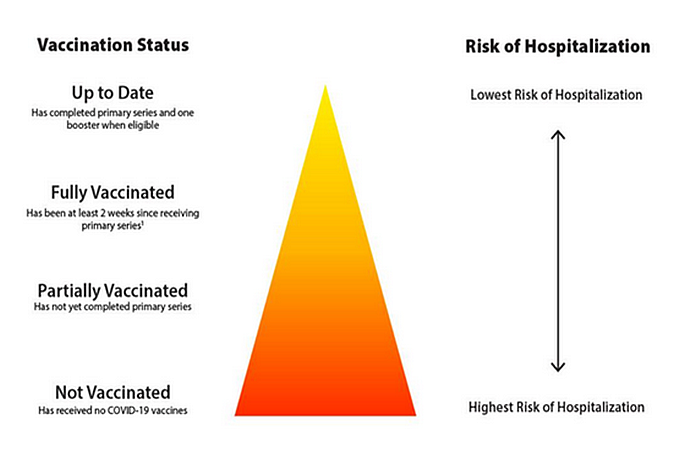ATLANTA, USA, (CDC) – At your first vaccination appointment, you should get a Centers for Disease Control and Prevention (CDC) COVID-19 vaccination card that tells you what COVID-19 vaccine you received, the date you received it, and where you received it.
Keep your CDC COVID-19 vaccination card for future use. Consider taking a picture of your card after your vaccination appointment as a backup copy. Bring your card to your appointment whenever you get an additional dose or booster so that your provider can fill in information about your shot.
If you have lost your CDC COVID-19 vaccination card or don’t have a copy, contact your vaccination provider directly to request a vaccination card or to get a copy of your vaccination record.
Get tested for COVID-19:
- If you have COVID-19 symptoms;
- At least 5 days after known or suspected close contact to COVID-19;
- For screening (schools, workplaces, congregate settings, etc.);
- Before and after travel;
- When asked by a healthcare professional or public health official.
Attending an upcoming event or gathering? Reduce the risk of spreading COVID-19 by getting tested as close to the event date as possible.
Self-tests are one of several options for testing for the virus that causes COVID-19 and may be more convenient than laboratory-based tests and point-of-care tests. If you have had COVID-19 in the past 90 days and recovered, you do not need to be tested unless you develop new symptoms.
The Coronavirus Self-Checker is an interactive clinical assessment tool that can help you decide when to seek testing or medical care if you think you have COVID-19 or have come into close contact with someone who has COVID-19.
Stay up to date with COVD-19 vaccinations
COVID-19 vaccines are effective at protecting people from getting seriously ill, being hospitalized, and even dying—especially people who are boosted.
As with vaccines for other diseases, you are protected best when you stay up to date. CDC recommends that everyone ages 5 years and older get their primary series of COVID-19 vaccine, and everyone ages 12 years and older also receive a booster.
A person is fully vaccinated two weeks after receiving all recommended doses in the primary series of their COVID-19 vaccination.
A person is up to date with their COVID-19 vaccination if they have received all recommended doses in the primary series and one booster when eligible. Some people can receive two boosters. Getting a second booster is not necessary to be considered up to date at this time.





